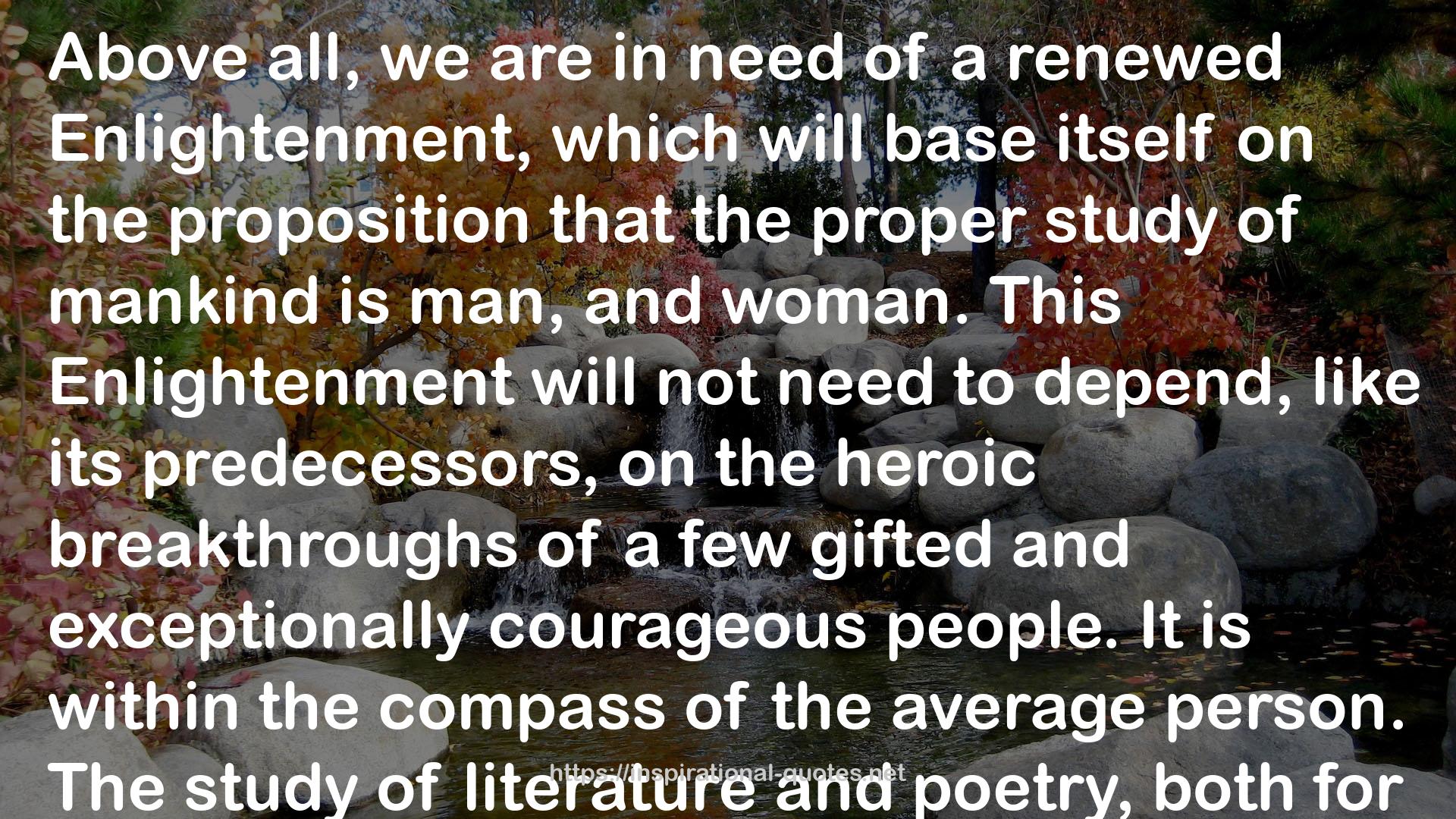" Above all, we are in need of a renewed Enlightenment, which will base itself on the proposition that the proper study of mankind is man, and woman. This Enlightenment will not need to depend, like its predecessors, on the heroic breakthroughs of a few gifted and exceptionally courageous people. It is within the compass of the average person. The study of literature and poetry, both for its own sake and for the eternal ethical questions with which it deals, can now easily depose the scrutiny of sacred texts that have been found to be corrupt and confected. The pursuit of unfettered scientific inquiry, and the availability of new findings to masses of people by easy electronic means, will revolutionize our concepts of research and development. Very importantly, the divorce between the sexual life and fear, and the sexual life and disease, and the sexual life and tyranny, can now at last be attempted, on the sole condition that we banish all religions from the discourse. And all this and more is, for the first time in our history, within the reach if not the grasp of everyone. However, only the most naive utopian can believe that this new humane civilization will develop, like some dream of “progress,” in a straight line. We have first to transcend our prehistory, and escape the gnarled hands which reach out to drag us back to the catacombs and the reeking altars and the guilty pleasures of subjection and abjection. “Know yourself,” said the Greeks, gently suggesting the consolations of philosophy. To clear the mind for this project, it has become necessary to know the enemy, and to prepare to fight it. "
― Christopher Hitchens , God Is Not Great: How Religion Poisons Everything
